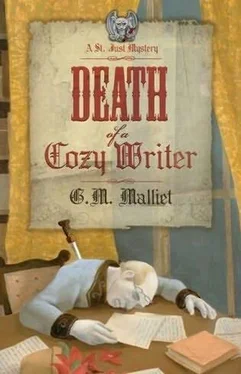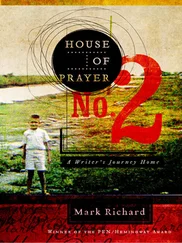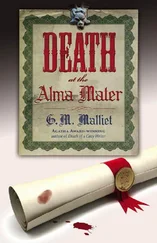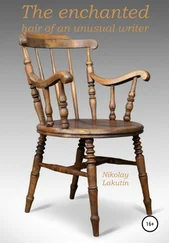“He was a vindictive man?”
Again, Albert laughed, a harsh, mirthless sound.
“Let me tell you a story by way of illustration, Inspector. Every once in awhile, some reporter would write a profile of him for one of the Sunday papers that accurately captured his personality and attempted to probe his background, rather than regurgitating the nonsense Father routinely fed to the gentlemen of the press. Said accurate reporter would soon find him- or herself out of a job. I always rather suspected Father would enlist Ruthven and his Fleet Street connections on these occasions.”
“How does this manuscript of his you say you found fit into what you’re telling me?”
“In keeping with his personality, I’d say he planned it as his last joke on the world. He knew when he died there would be a crush of authors-university types as well as popular authors-wanting to write the definitive biography. One of them might have the audacity to publish the truth, and he would no longer be in control of that. He decided to take the wind out of their sails by getting his own version out first, is my guess.”
Albert stood up and retrieved the manuscript pages from his desk.
“I had to leave the rest of it with Mrs. Butter. This is as far as she got. It’s all in there. Ruthven was not his son. Ruthven was not my brother. Doting father that he was, he had no idea Ruthven was completely the wrong blood type to possibly be his offspring. It’s something he discovered by accident that time Ruthven was in hospital. He saw the medical chart somehow; probably it was clipped to the end of the hospital bed.”
St. Just pulled out his gloves to handle the pages, knowing it was probably a waste of time. They’d been too manhandled by too many people by now. He turned over the pages, trying to make sense of it.
“You’d need a Rosetta Stone to decipher this,” he said. “I wonder how that American secretary managed it.”
He looked over at Albert.
“You’ve had this from the beginning. I know you didn’t feel it worth mentioning to us. Did you tell anyone about it?”
Albert shook his head.
“I needed time to try to decipher the handwriting. Judging from the title, the book held implications, good or bad, for Violet. I needed time to decide how best to play my hand. The possible ramifications of this were huge, I’m sure you can appreciate, but I wasn’t sure I could anticipate all the fallout.”
“The ramifications were possibly also deadly,” said St. Just.
“I don’t follow.”
“Effectively, Ruthven was cut out of the will from the first moment Sir Adrian discovered that Ruthven was not his son.”
“True. But that removed Ruthven as a threat, don’t you see?” protested Albert. “At least, as far as the rest of the family is concerned.”
“But by your own acknowledgment, you didn’t know about this until Mrs. Butter told you. And you told no one the manuscript even existed.”
Seeing too late the trap into which he had fallen, Albert mentally kicked himself. Too late to save Sarah, or any of the rest of them, for that matter, with a lie.
“I did hint to Sarah that something was up. Something important.”
“That’s not the same as telling her her brother was really her half-brother, and not Sir Adrian’s flesh and blood. As far as your sister knew, your news might have been that you’d found a cure for dandruff.”
“I didn’t know exactly what the manuscript contained, that is true. But I knew it was important. I knew that from the way Adrian was skulking around the house with it-or, to be accurate, having that Paulo skulk around on his behalf, unless I miss my guess. I think you underestimate the strength of the bond between my sister and me. It’s almost… well, telepathic. She wouldn’t have made a move without first finding out what-if anything-I had learned.”
“Hardly likely to hold up as a defense in a court of law, wouldn’t you say, Sir?” said Sergeant Fear.
Alarmed, Albert turned to him.
“Oh, I say. You’re not serious? Sarah is incapable of this, I tell you. It doesn’t matter in the least what she knew about Ruthven’s real relationship to her. The entire idea is preposterous.”
St. Just was thinking that given Albert’s predisposition in favor of his sister, he was not the most impartial witness they could have found.
“In any event,” Albert continued, “there was always the possibility Father was lying, just making things up to cause mischief. Even Sarah would have known that, known him . It could all have been just another of his outlandish plots. It certainly has all the earmarks so far. Nothing about the man was real, beginning with the ‘Sir Adrian.’”
“You knew about that? And of course, didn’t feel it worth mentioning…”
“That he bought the title? I didn’t mention the Battle of Hastings, either, Inspector, which seems every bit as relevant. But, yes, one of Ruthven’s people sussed that one out. He let it slip to the rest of us during one of the phases when he was on the outs with Father. But that’s not entirely what I meant.”
“Go on.”
“One of the more interesting suggestions in the book is that the protagonist-someone loosely based on Father himself, and I do emphasize the ‘loosely’-had other conditions attached to gaining the title than just cash. The name Adrian goes back many centuries in the Beauclerk-Fisk clan. My father has his protagonist, born Joseph Evans, change his name to Montague Ruskin-Pall or some such rot, as a condition of being named heir. Do you see what I mean? It’s very possible all of us have a real surname of Bollocks or Dumbprat. You never knew what was true, not with Adrian. Not even if your name were your true name.”
Just then St. Just’s mobile rang. Holding up one hand to still Albert, he pulled it from his pocket and hit the answer button. Fear watched as the Chief Inspector’s face drained of color.
He walked to one end of the room, holding a hushed conversation. Ringing off after a few moments, he thoughtfully put the mobile away.
“Yes,” said St. Just, turning slowly to Albert. What in the world is the matter? wondered Fear. The man looks like he just heard his granny died. “I do begin to agree that nothing here is as it seems.”
***
Martha had been barred from cleaning the bedrooms until the police had completed their search, and her lack of attention was evident. While some attempt had been made to keep the clothes under control, a frilly cluster of bras hung from a bureau knob like a brace of grouse.
This one was probably called the Green Room, thought Fear, looking around at the gathered draperies looped extravagantly at the windows, the satiny tufted chairs near the fireplace. It was decorated in a shade he supposed his wife would call celery, but Fear felt it came perilously closer to the color of baby spit.
Natasha sat at a writing desk, evidently sketching a diagram of some sort. Sergeant Fear had had a race to keep up with St. Just as he stalked down the corridor from Albert’s room. Whatever had his superior upset, Sergeant Fear knew better than to say anything for the moment.
She glanced up from her work.
“George isn’t here, I’m afraid,” said Natasha.
“It’s not George we’ve come to see,” said St. Just. “I had rather an unusual call just now. Someone named Sir Michael Cheek, of Scotland Yard.”
He looked at her closely.
“Who are you, really, Miss Wellings?”
She smiled.
“If I told you, Inspector, I’d have to kill you.”
“SORRY, CHIEF INSPECTOR. BAD joke. Detective Natasha Landeski of the Art and Antiques Unit at New Scotland Yard. That, as you know, is part of the Metropolitan Police Specialist Crime Operational Command Unit, or SO6. At your service.”
Читать дальше







![Изабель Гиллис - Cozy. Искусство всегда и везде чувствовать себя уютно [litres]](/books/406910/izabel-gillis-cozy-iskusstvo-vsegda-i-vezde-chuvs-thumb.webp)




